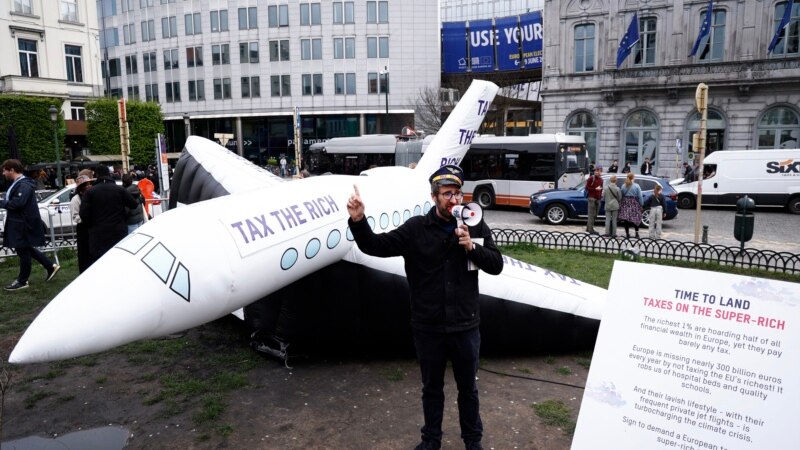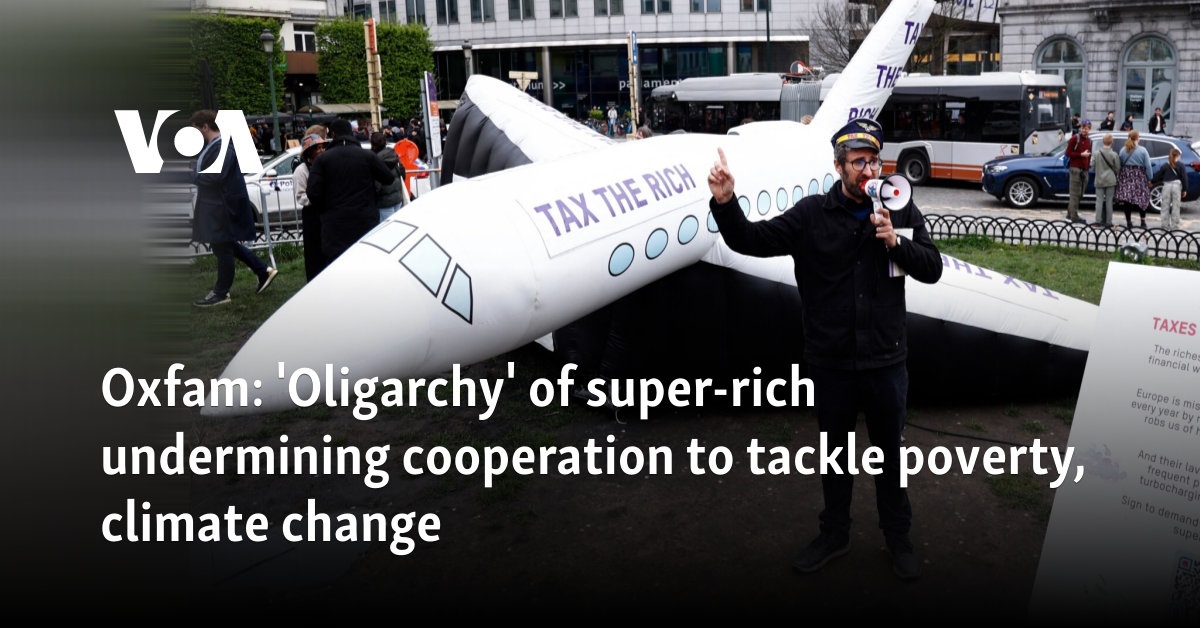This website uses cookies so that we can provide you with the best user experience possible. Cookie information is stored in your browser and performs functions such as recognising you when you return to our website and helping our team to understand which sections of the website you find most interesting and useful.


London —
As world leaders gather for the annual United Nations General Assembly in New York this week, the charity Oxfam says they are being undermined by what it calls a “global oligarchy” of the super-rich who exert considerable control over the global economy – and who it blames for exacerbating problems like extreme inequality and climate change.
“Today, the world’s richest 1% own more wealth than 95% of humanity. The immense concentration of wealth, driven significantly by increased monopolistic corporate power, has allowed large corporations and the ultrarich who exercise control over them to use their vast resources to shape global rules in their favor, often at the expense of everyone else,” the Oxfam report says.
The charity says international cooperation on issues like climate change and poverty is failing due to extreme economic inequality.
“The wealth of the world's five richest men has doubled since the start of this decade. And nearly five billion people have got poorer,” said Nabil Ahmed, the director of economic and racial justice at Oxfam America, in an interview with VOA.
Fair taxes
The report urges fairer taxation of large corporations and the ultra-wealthy.
“We live in a world in which mega-corporations… are paying next to or little to no tax basically. Not like the small businesses, not like the rest of us,” Ahmed said.
“It's such a phenomenal lost opportunity because we know governments, rich and poor, across the world need to claw back these revenues to be able to invest in their people, to be able to meet their rights,” he added.
Oxfam praises a campaign led by Brazil, which currently holds the presidency of the G20, to impose a 2% minimum tax on the world’s richest billionaires. Brazil’s government claims it would raise up to $250 billion from about 3,000 individuals, to pay for healthcare, education and tackling climate change.
A report by the French economist Gabriel Zucman, commissioned by Brazil, suggests billionaires currently pay the equivalent of 0.3% of their wealth in taxes.
The plan is backed by other members including South Africa, Spain and France. However, U.S. Treasury Secretary Janet Yellen spoke against the move at a G20 meeting in July.
“Tax policy is very difficult to coordinate globally and we don't see a need or really think it's desirable to try to negotiate a global agreement on that. We think that all countries should make sure that their taxation systems are fair and progressive,” Yellen told reporters.
Private debt
Oxfam says tax revenues in the global south meanwhile are increasingly spent on servicing debt to private creditors like banks and hedge funds.
“This shift has exacerbated the debt crisis, further entrenching “debtocracy.” Compared with official creditors, private entities issue debt with shorter maturities and higher, more volatile interest rates,” the Oxfam report says.
Vaccines
The charity also accuses large pharmaceutical companies of shaping rules over intellectual property rights to benefit their shareholders. Oxfam says that during the COVID-19 pandemic, this meant poorer nations struggled to access coronavirus vaccines, such as the mRNA vaccine made by Pfizer.
“Its negative impacts are most harshly felt by countries in the Global South, which bear the brunt of “artificial rationing,” where pharmaceutical corporations keep drug costs — and thus profits — high by limiting generic manufacturing, while simultaneously failing to invest in research and development for priority diseases in the Global South deemed less profitable,” Oxfam said.
Responding to VOA, Pfizer highlighted an open letter written by the company’s chairman Albert Bourla in 2021, in which he said the company had created a tiered pricing structure and had offered its mRNA coronavirus vaccine at cost price or for free to poorer nations. However, Bourla said that many richer countries moved faster to purchase the available doses.
“When we developed our tiered pricing policy, we reached out to all nations asking them to place orders so we could allocate doses for them. In reality, the high-income countries reserved most of the doses,” Bourla wrote.
Pfizer’s chairman also warned that losing intellectual property rights could “disincentivize” anyone else from taking a big financial risk in developing such vaccines, a view echoed by other large pharmaceutical giants.



 Africana55 Radio
Africana55 Radio 
